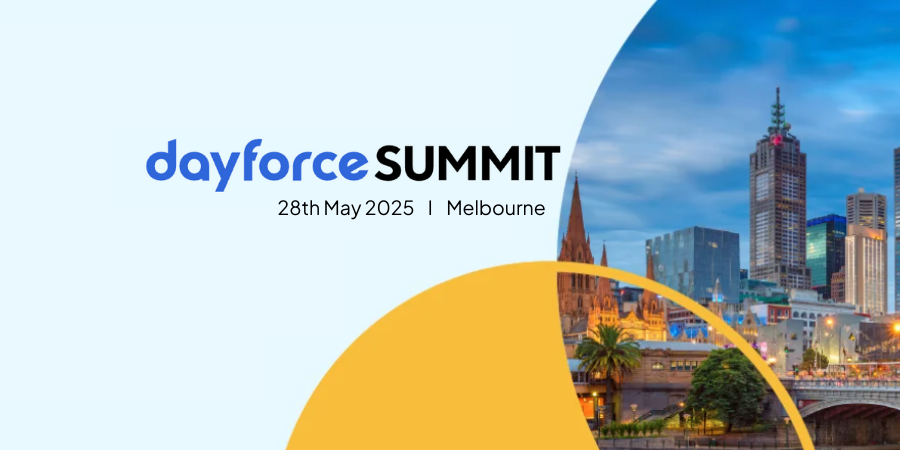Are you preparing to embark on an HR Tech Project? If so, the very thought may be overwhelming. Perhaps it’s fear of the unknown or even fear of failure. Not knowing where to start or even what it is you’re trying to achieve? Feelings about the task ahead are quite possibly anything but excitement!
Yet, for many, this journey can be one of the most rewarding professional experiences you will undertake. In this article, we’ll explore seven key factors that can help turn your HR Tech Project from a daunting task into an exciting adventure.
So buckle up, HR Leaders, it’s time to get the HR Tech party started!
1. Talk to people with HR Tech project experience
You know you’re not the first person to take on a project like this. So you don’t need to be alone on the journey. Seek out people who’ve done HR tech projects before. They might be peers in your network, referrals from colleagues or external experts.
Collaborating with those who have successfully navigated similar projects before can offer invaluable insights, making the process more manageable and less daunting.
Even those who’ve got the war wounds from projects gone wrong can help you. Learning where the pitfalls are and how to mitigate the typical risks can make all the difference in your project’s success.
There is a wealth of HR tech project experience available to you, so ensure you tap into it. Knowing you have someone to turn to for advice at the right moment, or an expert who can help guide you through the complexity of Cloud HR transformation, allows you to go into your project with confidence.
2. Invest in the early planning
A well-laid plan will help you visualise success. Allowing you to anticipate challenges, manage resources effectively, and ensure a smooth execution. It’s like building a blueprint for a house – it’s much easier to construct when you have a clear picture of what the end result should look like.
Investing time and resources upfront in planning for your HR transformation project is crucial. This includes creating the overarching vision, getting clarity on your future state aspirations, articulating your guiding principles and business priorities. This early planning should involve collaboration with diverse stakeholders across the business to get their input and buy-in.
Key elements of the project such as scope also need to be considered at this stage.
Is this an opportunity to look more broadly at digital transformation across your people processes and systems? Should payroll be included? Perhaps your rostering, time and attendance challenges and requirements can be brought into the project scope? Does it make sense to try and unify all your workforce functions into one platform?
These are all questions and considerations that need to be addressed in the early planning stages. Once you have clear answers, laid out in a detailed plan, you’ll feel the project anxiety start to fade. In its place will be a growing anticipation for the innovation and changes ahead for your organisation.
3. Assemble your Dream Team
Building a capable project team is critical, but don’t forget to inject some fun into the mix! A team that enjoys working together is more likely to overcome obstacles, come up with innovative solutions, and drive the project to success. You’re likely to be spending a lot of time with these folks over the next few years, so take your time in choosing your crew. It’s not just about skills and experience, it’s also about a positive, collaborative spirit.
Ensure that you’ve got a good blend of talent, personality, and camaraderie within the team. Looking forward to working and collaborating with capable, fun people on your project will lift your spirits and inspire you into action. Learn more in our article ‘Meet Your Dream Team: 8 roles that define HR Tech Project Success‘.
4. Imagine the future experience for your workforce
One of the most exciting aspects of embarking on a Cloud HR transformation project is envisioning the positive impact it will have on your organisation’s future.
Picture the enhanced efficiency, the streamlined processes, the empowered and delighted employees. Imagine having all your workforce data and insights at your fingertips. Think about the value added work that your HR teams can be delivering to your business once you automate all the tedious manual tasks they’re currently doing.
This is your chance to make change and shape the future of your workforce. Keep this vision in mind throughout your journey – it will help fuel your energy and keep you focused on the end goal.
5. Spread the word
One of the best ways to keep your own excitement alive is to spread it around!
Engage broadly across your business, share your enthusiasm, and let others feed it back to you. When everyone sees the potential benefits of the project, it can create a positive feedback loop of anticipation and motivation.
Start early with your communications around the project. Right up front in the planning stages, ensure you are clear on who your business personas are, what’s in it for them, how you’re going to communicate with them, and what the key messages are for each group. This will enable you to engage with them early on and throughout the program – continuing to build the momentum and commitment across the business and not just within the project team.
6. Kick-off in style
Why wait until the project goes live to celebrate? Mark the beginning of your transformation with a kick-off event.
Celebrate the fact that you’ve secured funding, chosen a fantastic HR tech platform and partner, and rallied your senior stakeholders and change champions. This event can serve to amplify excitement, unify your team, and set a positive tone for the project ahead.
Kick-off events can be done in person, remotely or in a hybrid setting. Whichever approach you take there are a few key elements to getting them right.
You should have the two most senior stakeholders or sponsors involved in setting the scene. Their role is to explain the ‘why’ behind the project, enlighten everyone about the benefits and what it means for them in the future. They should demonstrate full endorsement of the project team and seek commitment to the project from the rest of the business.
The project owner or manager can then provide insights into the program scope, team structure, roles and responsibilities, timelines and key upcoming activities.
Aim to get anyone who is going to be involved in the project at any stage along to the kick-off. If you haven’t already engaged them in the early planning phases, this is the time to get them on board and super-charged about their role in this business critical initiative.
7. Jump into action
Don’t let worries hold you back. Transform your concerns into plans and get started. Seeing your project start to take shape is sure to spark excitement. As you witness your plans coming to life, and others getting engaged, you’ll feel the energy growing.
And anytime you feel more ‘aaaargh’ than star, take a step back, revisit your plan, get some advice if you need to. ‘Work the plan’ is one of my favourite catchcries and pieces of advice whenever anyone gets lost or stuck in the middle of the project!
Even if it means you have to rethink or reshape your initial path, that’s ok. But once the plan is clear again, start working it.
Embarking on an HR Tech Project is indeed a significant undertaking for any HR Leader. It’s one that will be filled with challenges, but also with great rewards.
By harnessing the power of other people’s experience, investing in planning, building a vibrant team, looking to the future, spreading the joy, celebrating the wins, and being in action, you can turn this opportunity into an exciting ride!
Every great adventure begins with a single step. So take that step and let’s get started! Contact our HR tech experts today.
About the Author





